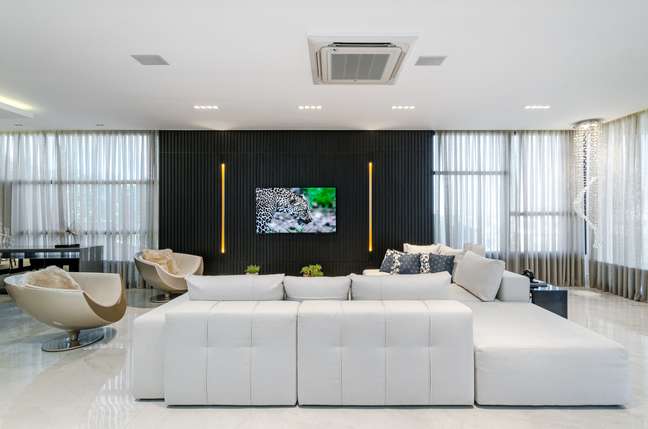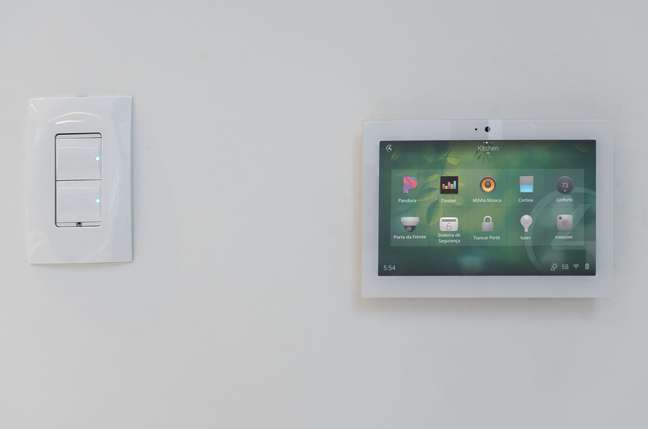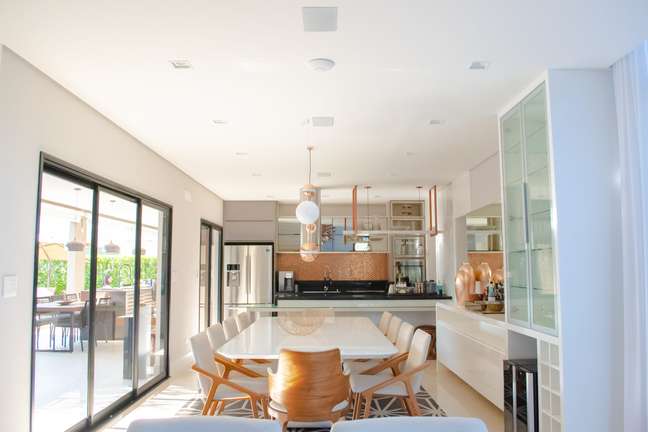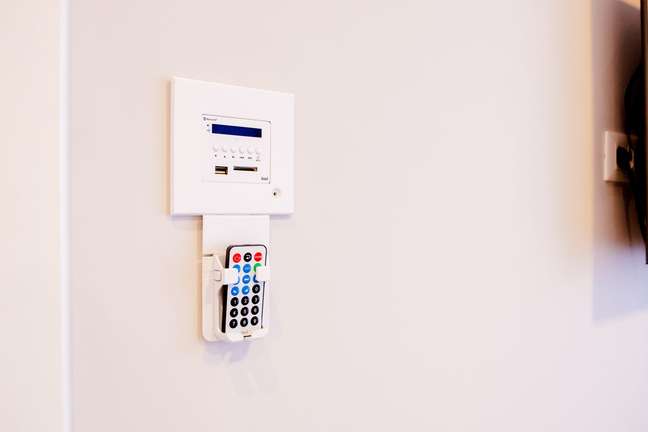The Director of Domus Automação explains the advantages, the price and how to make your home smart

Unlike the futuristic houses created from the images of “The Jetsons”, connected houses can be discreet and functional. Whether it’s an integrated sound and light system, automatic door locks or a range of household appliances that can meet the resident’s needs and desires.
Technology in the home guarantees safety, personalization and savings for people of all ages. In post-pandemic times, it has also become a health measure, as most commands are carried out by voice assistants or programming, avoiding physical contact.

“The initiatives can also help people with some kind of disability, such as: buttons can bring down the shelves and the lamps connected to the doorbell allow people with hearing problems to see the presence of a person at the door,” he says. Marcus Vinicius, director of Dominus Technology and Automation.
“For the elderly, bringing technology into everyday life is synonymous with autonomy, which manifests itself in the lamps that turn on automatically when they sense movement, for example. The only difference between technology for the elderly and for the youngest is that the first group needs support to start using the system. But if they have this help, they embrace it, “completes Marcus.
How much does a smart home cost?
According to the Brazilian Association for Building and Building Automation (Aureside), there are currently an average of 900,000-2 million smart homes in Brazil, a number that was close to 300,000 in 2015. Many new needs have emerged, of which automation plays an extremely important role.
The new home scenario is divided into two large groups: project automation and plug and play. The former is usually thought of before the works and in a personalized way, as it requires a specific infrastructure to integrate the systems. The second goes far beyond comfort, bringing practicality, economy and comfort to families, which has made this universe attractive even for the layman in this field.

With the increase of products on the market, the solutions are different: there are image, sound and safety equipment, among others, all with the possibility of being integrated into the automation, allowing remote control. However, the price for building a smart home varies greatly.
In terms of values it varies from project to project, type of equipment and levels of automation, but to give you an idea, for a house of 100 square meters, it is possible to install a control of four lighting circuits and devices that use the remote control, such as air conditioning and television, from R $ 30 thousand.

Based on image and sound technologies, such as LED panels and ambient sound, the projects start at R $ 150,000, with the possibility of integration with automation. For complete automation projects, the value with premium line equipment and automation system is around R $ 300 thousand.
Sustainability
Another current term that brings the smart home is sustainability. Allows the visualization of energy costs through applications and rationalizes expenses. So, like a modern car turning off its engine when it notices you’ve stopped at a traffic light and turning it back on as soon as you hit the gas, a smart home will notice that you’ve gone out to do something and left the TV on. He will be able to turn it off and on again when the motion sensors detect his approaching the room.
The technology will also be able to open the curtains in the morning, turn off the lights at certain times, turn off the air conditioning when it reaches preset temperatures, and much more.
Step by step to make your home smart:
- Development of the residence project.
- Definition of the equipment and automation solutions that will be used.
- Execution of the project by the construction team.
- After everything is finalized, the cabling and infrastructure process begins.
- Finally, the installation of the technological equipment and the integration of automation are completed.
The advantages of the smart home
- Residence with infrastructure for technology and automation has an appreciation of 5% to 10% of the property value.
- New, unprepared homes will lose market value.
- Possibility of intelligent control of the residence.
- It allows economy, convenience and quality of life.
+The best content in your email for free. Choose your favorite Earth Newsletter. Click here!
Source: Terra
Benjamin Smith is a fashion journalist and author at Gossipify, known for his coverage of the latest fashion trends and industry insights. He writes about clothing, shoes, accessories, and runway shows, providing in-depth analysis and unique perspectives. He’s respected for his ability to spot emerging designers and trends, and for providing practical fashion advice to readers.








